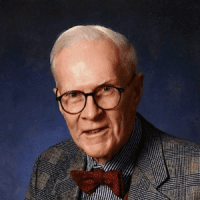Spring in Washington for the Association headquarters staff brings a rising crescendo of committee meetings and activities, preparing for them, and carrying out their decisions afterwards. Face to face meetings of five main committees provide the structural framework for the AHA’s yearly business—the three division committees active on teaching, research, and professional concerns of history and historians; the Nominating Committee which draws up our slates of candidates for office and recommends to the Council nominees for our annual distinguished service awards; and the Program Committee which crafts our annual meeting program each year.
All of these committees meet in the late winter or early spring, and all except the Nominating Committee meet in the autumn as well. There are other key committees, such as the Committee on Women Historians, the AHA-OAH-SAA Joint Committee on Historians and Archivists, and the new Membership Committee, which also meet twice a year.
The Association has recently added another major committee to focus our attention and activities more vigorously on the interests and concerns of minorities. The Committee on Minority Historians is chaired by Joseph Harris, Howard University, and has as members Deena Gonzalez, Pomona; Clara Sue Kidwell, California, San Francisco; Antonio Rios-Bustamante, Arizona; Claire Sanders (graduate representative), North Carolina, Chapel Hill; Joseph Taylor, Bethune-Cookman; and R. Bin Wong, California, Irvine. Although the Committee has been created to provide greater attention to all minority interests and concerns, the Association has asked it to devote priority attention to what we can do to increase the flow of minority students into the long pipeline that supplies trained history professionals to our profession. The Committee will hold its first full meeting in Washington in late spring to address the question of minority participation in the AHA as well as look at long term projects for recruitment of minorities into the profession.
By the time this issue of Perspectives reaches you (but after it goes to press), the governing board of the Bill of Rights Education Collaborative will have met to review proposals in the first round of competition in three regrant programs it is sponsoring this year to strengthen pre-collegiate education about constitutional rights. The three special funding areas are short course professional programs for teachers, mini-grants for teachers’ projects, and teacher-centered state humanities council projects. Funded by the Pew Charitable Trusts, this joint AHA-APSA project is also supporting collaborative programs organized by the History Teaching Alliance, in-service workshops overseen by the National Council for the Social Studies, a directed research program for teachers developed by the Philadelphia Alliance for Teaching Humanities in the Schools, publication of a special Bill of Rights issue of the OAH’s Magazine of History, and several smaller publication and program initiatives. The April issue of Perspectives will provide a list of BREC grant recipients as well as upcoming grant deadlines.
Also this spring, after nearly five years of planning and preparation, the editorial office for the Guide to Historical Literature project will open on the University of Maryland, College Park campus, and we are extremely pleased to announce the appointment of Pamela deHart Gerardi to oversee it. As associate editor of the Guide, she will be the project’s only full-time staff person, responsible not only for the day-to-day operations of the office, but also for the coordination of the work of the over 500 historians who will be involved as section editors, contributors, and consultants. Dr. Gerardi comes to the Guide from the University Museum at the University of Pennsylvania, where, as a research associate in the Babylonian Section, she has had extensive experience in scholarly editing and publishing. She holds a Ph.D. in Assyriology from the University of Pennsylvania and recently returned from a year-long appointment as a Humboldt Fellow at the University of Munich.
We were impressed by the number of well-qualified candidates for the position and appreciate the time and effort that the search Committee put into reviewing applications and interviewing the finalists. The Committee included Mary Beth Norton, Cornell University, project director and general editor of the Guide; Ira Berlin, University of Maryland, College Park, former member of the AHA Research Division; and Richard R. Farrell, associate chair of the history department, University of Maryland, College Park.

